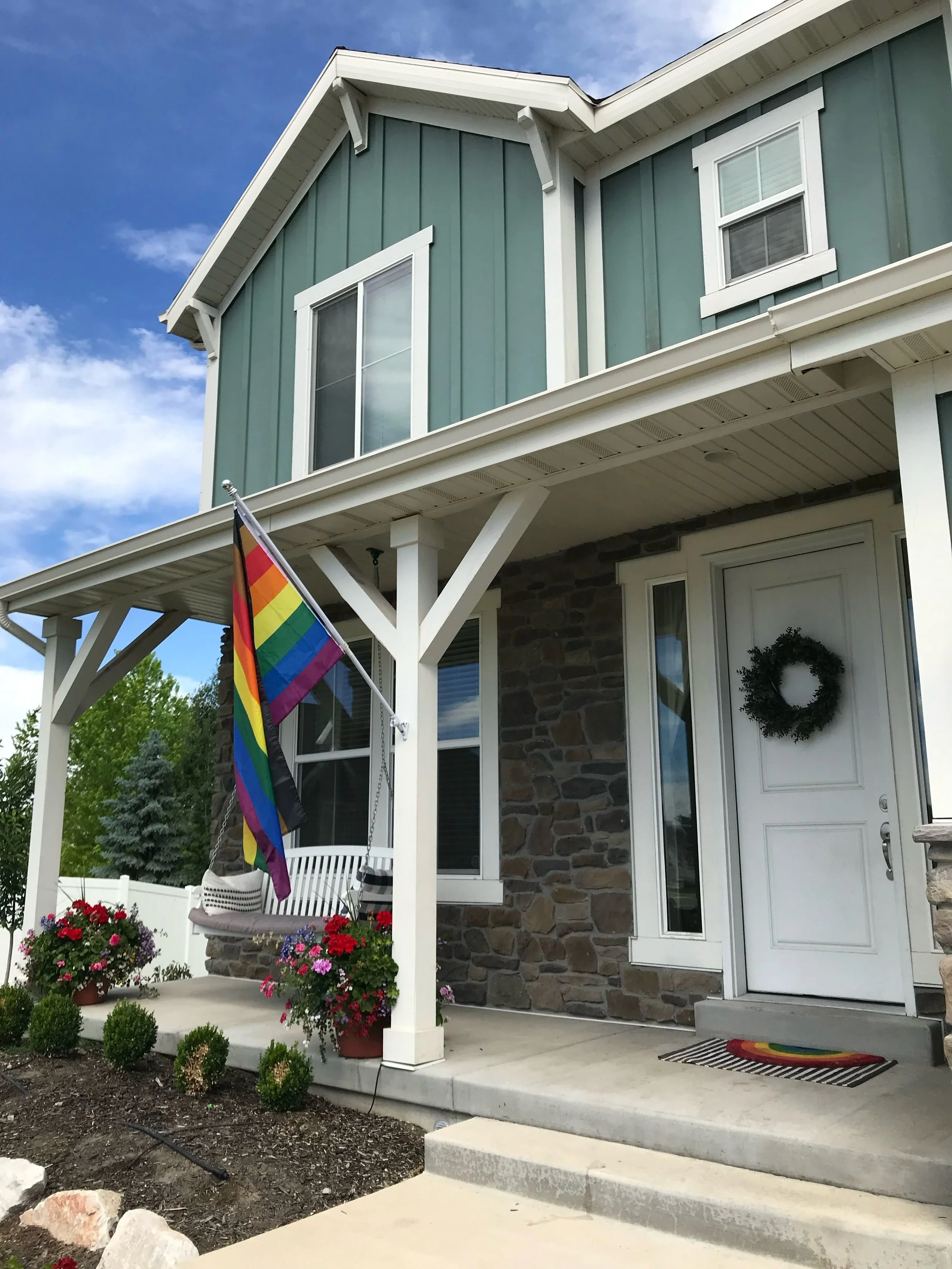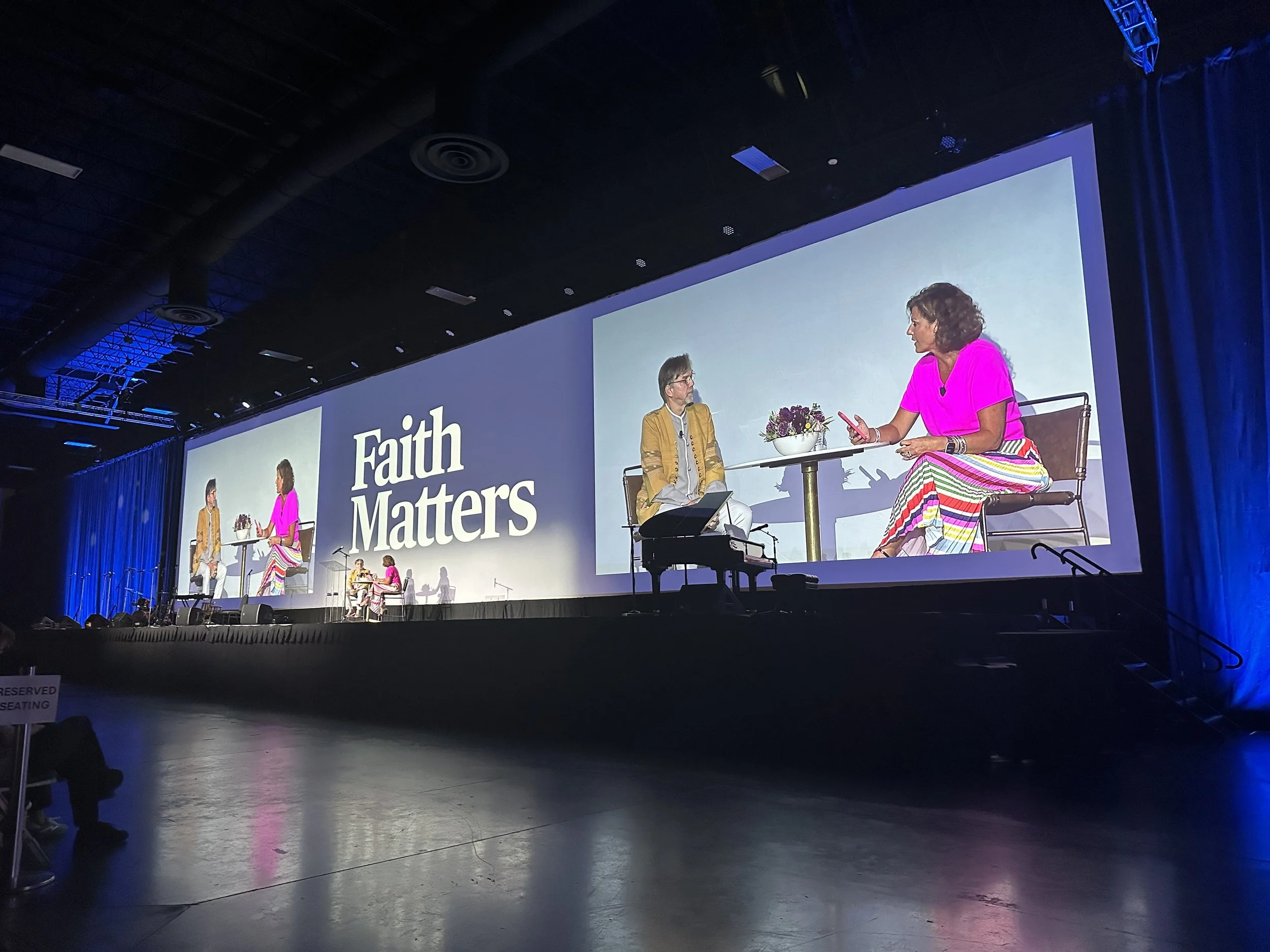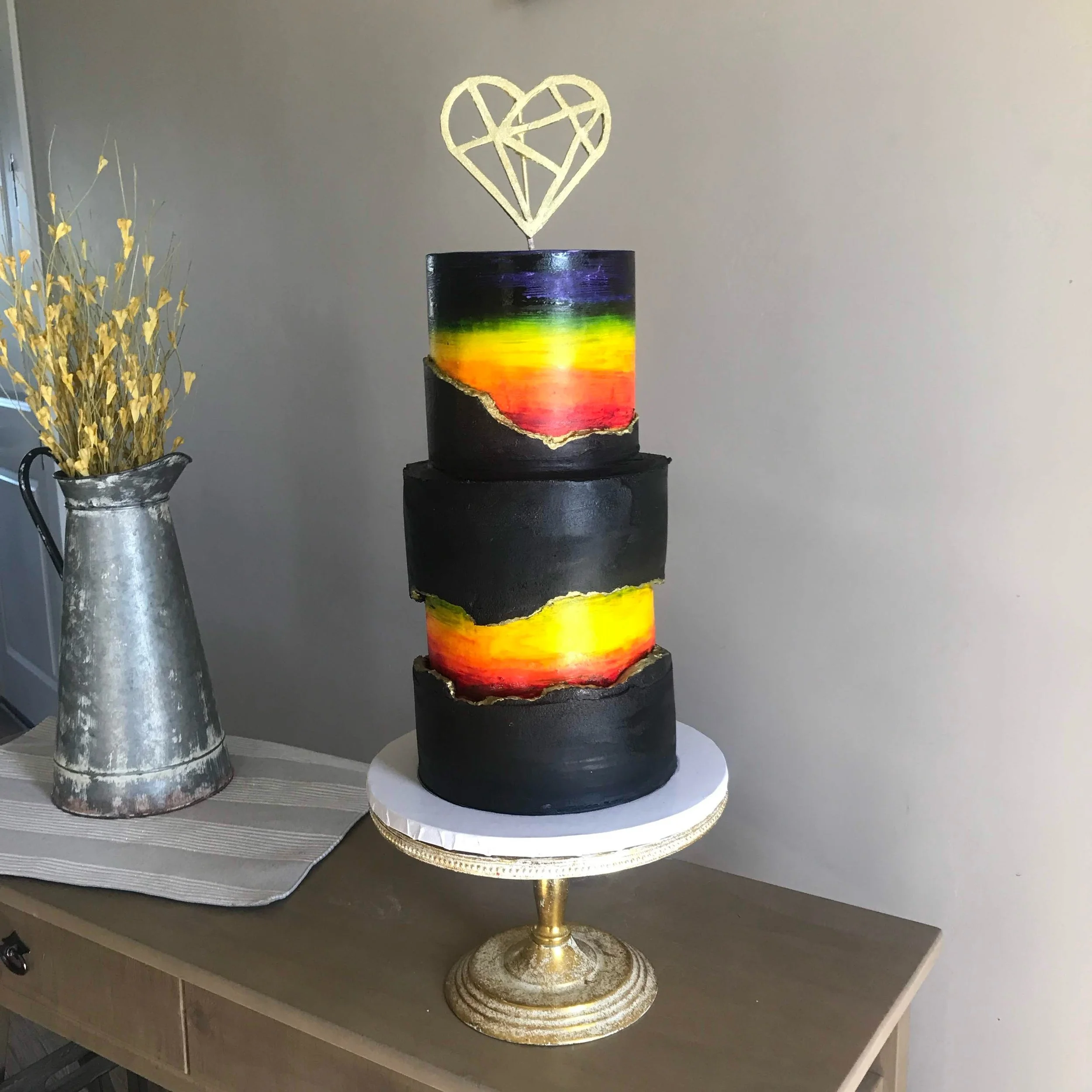AUBREY CHAVES
Aubrey Chaves has mastered the art of asking questions. As the co-host, alongside her husband Tim, of the popular Faith Matters podcast, Aubrey is known for her curious spirit and ability to ask complex, thoughtful questions of her guests, who range from scholars and theologians to therapists and philosophers. The conversations she helps lead are not surface-level; they probe deeply into the experience of faith expansion, and often, faith crisis.
Her instinct for asking good questions stems from her own period of deep questioning. Around 2011, Aubrey’s husband read Rough Stone Rolling by prominent LDS scholar Richard Bushman, and it shook their world. Aubrey had picked up the book to better understand her husband’s wrestle as he sought answers as to how best to defend the church, but instead found herself devastated by its contents. She says, "It forced me to face questions I’d ignored so long because I thought if a question disturbed me, it must be from an outside source or not true."
What initially disturbed her most was church history, but over time she became even more troubled by the present-day implications—particularly the harm she saw in the church’s position on LGBTQ+ issues. History, she realized, was static, but current doctrine and policy were not. "I felt disturbed by some of what I read that I couldn’t explain—some things that were not doing active harm, but the position on LGBTQ was doing active harm."
Aubrey had long believed that the truthfulness of the church meant it was always aligned with God's will. But once that certainty began to crack, the weight of being complicit in harm became unbearable. She felt a sense of urgency to decide whether to leave or stay. She entered what she calls a "season of consumption"—a six-year period of reading, learning, and trying to resolve the dissonance. Eventually, she became more comfortable with uncertainty. She realized there might never be a single answer that could make everything feel tidy again.
With that realization, she began to redefine the church’s place in her life. Rather than seeing it as a source of all gifts and truth, she started to view her relationship to it as one where she could offer her own gifts and energy. Discovering the Faith Matters community and being asked to take over the podcast along with Tim emerged from this shift—a space to pour her energy into thoughtful conversation. She recalls, “It came about organically because we felt so desperate for connection, to find people asking similar questions and burdened by similar pain.”
Aubrey sees ongoing tension around LGBTQ+ issues as a large part of the necessary struggle. Though she wishes the church were doing more, she believes in the power of creating bridges through honest dialogue. One conversation that stayed with her was with LDS scholar Terryl Givens, who told her, "Sometimes we make an idol of our own integrity." That sentiment helped her understand why she continues to stay and engage, even when doing so is painful.
There have been many moments when it would have been easier to walk away. But she believes there’s value in remaining at the table, asking questions, building trust, and staying in difficult conversations. "I've stayed in the church to stay in the conversation—even if I'm in an excruciating conversation or at a table where we're not all aligned."
Aubrey has often felt conflicted about that choice. There were times when integrity seemed to demand something more finite—like leaving altogether. But she believes that defining integrity in such narrow terms might not capture the full picture. “Maybe we don’t always have to do all or nothing,” she reflected. “People feel a call and energy moving them to where they’ll be able to do the most good for their soul or community. For me, I felt it was okay to stay and be very uncomfortable—a calling to put my gifts and energy here.”
It took years, she said, to feel peace in that lack of alignment. But over time, she found that her discomfort became a source of transformation. “I use my gifts to push toward real change— trusting that transformation within my own circle of influence can create meaningful ripples.”
She describes the Faith Matters experience as one of healing and exchange. “It feels like healing flowing—we’re recipients as much as we put out,” she said. In the most honest conversations, even between people who completely disagree, she has seen something almost mystical happen. “There’s a magic moment where people are being vulnerable, honest, coming to the table in good faith, to connect. The technicalities of where you fall on one issue aren’t quite so loud because of this connection. The energy is so much softer.”
This shift, she said, feels worlds away from the “angsty arguments” that once left her feeling defensive. Instead, there’s a more grounded compassion, a willingness to understand.
In recent years, as Utah legislation has taken sharp turns that many have found painful, Aubrey has also felt the weight of needing to respond. “It never feels like enough to say our hearts are hurting, too, in Utah,” she said. “But whenever church things come up, I hope people feeling the most vulnerable and raw know that those of us who feel more safe are using our privilege. I hope it’s some comfort.” She sees her role as someone who can use her voice to open doors. “I’m hoping to be a resource—to get into a room for someone with a harder path. I hope they feel a sense of solidarity. I’m here, with linked arms.”
A large part of Aubrey and Tim’s allyship journey began while they were living in Boston. They developed a close friendship with a married gay couple—neighbors and classmates of Tim’s in business school. These friends, without ever explicitly trying to teach or convince, helped Aubrey and Tim see that their lives were fundamentally the same. Through genuine friendship, any lingering resistance Aubrey had simply dissolved.
"It was the universe’s gift to us," she said. "While asking big questions, we had this steady handful of friends. It was a totally unspoken way of breaking down any remaining barriers. They evaporated because we loved these people so much."
By the time they returned to Utah, Aubrey felt deeply committed to helping the church become more aligned with the inclusive spirit of Jesus. That experience solidified her sense of purpose. It also helped Aubrey and Tim learn how to be a safe space for others, especially for LGBTQ+ loved ones who later came out. They want to always be the kind of people who radiate unconditional acceptance.
In their Midway, Utah home, Aubrey and Tim are raising four children, ages 16 to 7. From the beginning, they’ve tried to make LGBTQ+ inclusion feel joyful. Each year, they go all out decorating for Pride month, turning it into a family celebration with rainbow-themed treats and signs.
Over time, their children have come to see LGBTQ+ identity as something to celebrate. Their youngest child doesn’t even recognize there might be tension around the topic. For her, learning someone is LGBTQ+ is simply fun and good news.
As their kids have grown, Aubrey has seen how these early efforts shaped them. They’ve formed meaningful friendships with LGBTQ+ peers, who often recognize their home as a safe space just by seeing a rainbow decoration or a photo from a Pride event.
One of the most powerful moments of visceral change in recent years came during last year’s Faith Matters Restore gathering, where Allison Dayton and John Gustav-Wrathall led a session together. Aubrey remembered watching the energy in the room shift as John shared his story. The audience, many unfamiliar with John or his journey in and out and back into the church while being married to his longtime partner, leaned in with openness and empathy.
John’s decades-long effort to seek fulfillment while holding on to what was important to him resonated deeply. Even attendees from more conservative backgrounds responded with compassion. Aubrey said it felt like "4,000 people leaning in together."
Faith Matters surveyed its audience, and LGBTQ+ inclusion ranked among their top concerns, alongside women’s issues. Most of their listeners are still active in their wards, navigating tension as they show up with love and faith. Aubrey hopes those who are struggling know they’re definitely not alone.
Reflecting on how to handle difficult conversations, Aubrey draws inspiration from Jonathan Haidt’s book, The Righteous Mind. She’s learned that trying to persuade through logic is rarely effective. Instead, she finds that storytelling and connecting at that heart level are always more productive for good.
By sharing what is honest and painful instead of confronting or creating tempting arguments, she has seen conversations shift and “connection across the table that does so much of the heavy listening.” It’s then that Aubrey knows, “Seeds are planted in those moments—and that is the most fertile ground for good fruit.”
Aubrey Chaves will be presenting at this year’s Gather Conference. To register, go to: www.gather-conference.com






